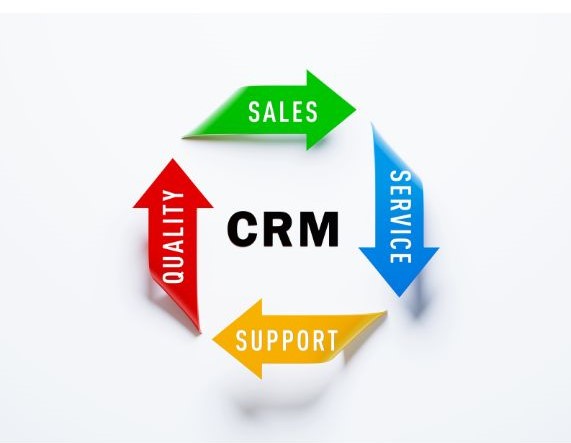

Customer Relationship Management (CRM) for E-Commerce Success
Introduction
In the ever-evolving world of e-commerce, building and maintaining strong customer relationships is crucial to your success. Happy and loyal customers are more likely to return and make repeat purchases, serving as the lifeblood of your business. Customer Relationship Management (CRM) is the key to achieving this, offering tools and practices to understand your customers better, tailor your approach, and retain their loyalty. In this comprehensive guide, we’ll explore the significance of cultivating strong customer relationships in e-commerce and discuss how CRM software and practices can help you keep valuable customers coming back for more.
The Power of Customer Relationship Management (CRM)
Customer Relationship Management (CRM) is a strategic approach that focuses on understanding, managing, and nurturing relationships with your customers. It involves the collection, organization, and analysis of customer data to improve interactions and enhance customer experiences. Here’s why CRM is essential for e-commerce success:
- **Customer Retention:** CRM helps you retain existing customers by fostering loyalty and delivering tailored experiences.
- **Personalization:** By understanding customer preferences and behavior, you can personalize marketing efforts and product recommendations.
- **Improved Customer Service:** CRM provides a 360-degree view of customer interactions, enabling your team to provide more informed and efficient customer support.
- **Data-Driven Decisions:** CRM data informs decision-making, from product offerings to marketing campaigns.
- **Scalability:** As your e-commerce business grows, CRM systems can adapt to handle a larger customer base.
Building Strong Customer Relationships in E-Commerce
Now, let’s delve into strategies and practices for cultivating strong customer relationships in e-commerce:
**1. Personalized Communication:**
Customers appreciate personalized messages, whether it’s tailored product recommendations, special offers, or personalized email content. CRM software helps you collect and leverage customer data to create these personalized interactions.
**2. Exceptional Customer Support:**
Prompt and effective customer support is vital for e-commerce success. CRM systems centralize customer information, enabling support agents to access historical interactions and offer a more personalized service.
**3. Loyalty Programs:**
Implement loyalty programs that reward repeat customers. These programs can include discounts, exclusive offers, and early access to sales. CRM software can help you track and manage these programs.
**4. Data Collection and Analysis:**
CRM systems gather and analyze customer data, from purchase history to website interactions. This data provides insights into customer behavior and preferences, helping you tailor your approach.
**5. Marketing Automation:**
Use CRM software to automate marketing tasks, such as sending follow-up emails, abandoned cart reminders, and customer feedback requests. Automation ensures that no customer interactions slip through the cracks.
**6. Customer Feedback:**
Seek and value customer feedback. Use CRM to collect feedback and take action to address customer concerns and suggestions.
**7. Segmentation:**
Segment your customer base based on factors like purchase history, demographics, and preferences. This allows for targeted marketing campaigns and personalized content.
**CRM Software for E-Commerce**
Choosing the right CRM software is essential for your e-commerce business. Here are some popular CRM platforms that are well-suited for e-commerce:
- **Salesforce:** A robust CRM platform that offers e-commerce solutions, customer support, and marketing automation.
- **HubSpot:** Known for its user-friendly interface, HubSpot provides marketing, sales, and customer service solutions that can be tailored to e-commerce needs.
- **Zoho CRM:** An affordable option that offers features for contact management, lead generation, and sales automation.
- **Pipedrive:** Focuses on sales management and automation, making it a good fit for e-commerce businesses looking to streamline their sales processes.
- **Zendesk:** Known for its customer support features, Zendesk’s CRM software helps e-commerce businesses improve customer service and retention.
**CRM Implementation Best Practices**
When implementing CRM in your e-commerce business, follow these best practices:
- **Data Security:** Protect customer data and ensure compliance with data protection regulations like GDPR.
- **Integration:** Integrate your CRM system with your e-commerce platform to ensure seamless data flow.
- **Training:** Provide training to your team on how to use the CRM effectively.
- **Regular Updates:** Keep your CRM system updated to access the latest features and security patches.
- **Measurement:** Set key performance indicators (KPIs) for your CRM efforts, such as customer retention rate and customer satisfaction scores, and regularly measure and analyze your performance.
Conclusion: Elevate Your E-Commerce Success with CRM
Building strong customer relationships is the cornerstone of e-commerce success. With the right CRM software and practices in place, you can understand your customers better, offer personalized experiences, and foster loyalty that keeps customers returning for more. CRM empowers you to deliver exceptional customer service, automate marketing tasks, and make data-driven decisions that drive your e-commerce business forward. In the competitive landscape of online retail, a customer-centric approach is the key to achieving lasting success.
RELATED ARTICLES FOR THIRD PARTY PLATFORM SETUP AND OPTIMIZATION
Bringing you the latest information, ideas, products and services for your E-commerce business.
Copyright 2024 E-Market Pulse
Contact Us
We may receive compensation from partners listed through affiliate partnerships, at no cost to you. This doesn’t influence our ratings, and the opinions are our own
Subscribe to our Newsletter
Get updates on products and services specially targeted to help you succeed.
